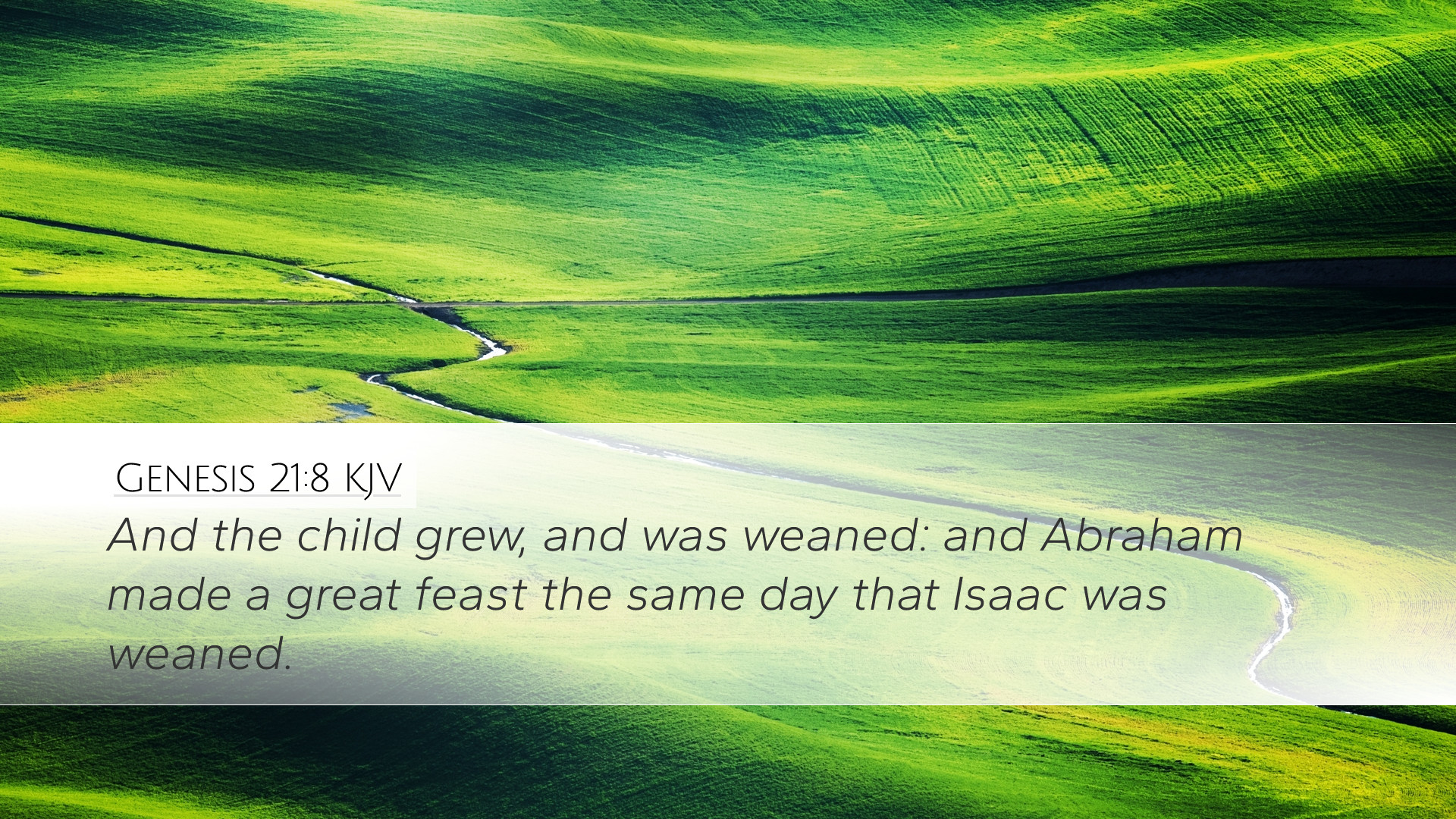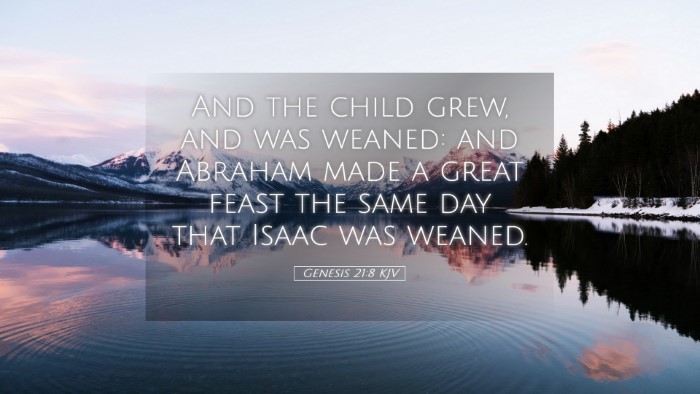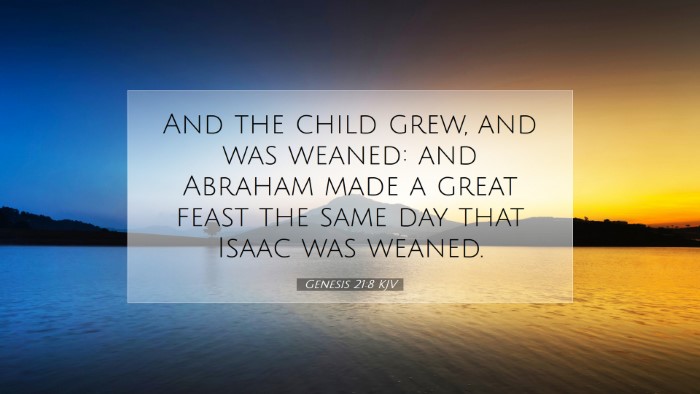Commentary on Genesis 21:8
Genesis 21:8 states, "And the child grew, and was weaned: and Abraham made a great feast the same day that Isaac was weaned." This verse marks a significant moment in the narrative of Abraham's family, celebrating the weaning of Isaac, the promised son. Below, we present a synthesis of insights from respected public domain biblical commentaries.
Contextual Overview
This passage falls within the overarching story of God's covenant with Abraham and the miraculous birth of Isaac. After years of waiting and doubt, Abraham and Sarah finally hold their son, a fulfillment of God’s promise. The weaning of Isaac signifies a transition, both physically and spiritually, that warrants recognition and celebration.
Significance of Weaning
The act of weaning signifies an important developmental milestone in ancient cultures. According to Matthew Henry, this stage symbolizes a child’s growth towards independence and a move toward solid foods, reflecting spiritual maturity as well. It also illustrates the nurturing role of Sarah and the care required of mothers in raising the next generation.
Abraham’s Celebration
Abraham’s response to Isaac’s weaning is to hold a great feast. Albert Barnes highlights that this celebration signifies the joy and relief of seeing God's promise fulfilled. The feast is not merely a familial event but a manifestation of gratitude and acknowledgment of God's faithfulness. It serves as a public declaration of God’s provision and blessing upon Abraham’s household.
Cultural and Theological Implications
- Family and Community: Adam Clarke emphasizes the importance of community in such milestones. Celebrations like this weaning feast would typically involve extended family and neighbors, reinforcing community ties and the communal nature of covenant fulfillment.
- Faith and Expectation: The timing of the feast also holds theological importance. It demonstrates Abraham's faith journey, moving from doubt to celebration. Matthew Henry notes that such public recognition of God’s blessings serves to strengthen faith among Abraham's community.
- Joy in Fulfillment: The joy expressed in this feast serves as a model for believers today—a reminder that God’s promises culminate in genuine joy and celebration. Albert Barnes draws attention to how this illustrates God’s continual faithfulness to His people and the joy the fulfillment of promises brings.
Lessons for Today
The narrative of Isaac's weaning and Abraham's feast offers believers several insightful lessons:
- Celebration of Milestones: Just as Abraham celebrated Isaac's growth, we too should recognize and celebrate the milestones in our spiritual journeys and those of others in our communities.
- The Role of Parents: This passage underscores the importance of parental involvement in child-rearing and the crucial roles mothers and fathers play in a child’s spiritual and physical growth.
- Public Acknowledgment of God’s Work: The act of feasting signifies an outward expression of gratitude and acknowledgment of God’s blessings, reminding modern believers of the importance of sharing testimonies and celebrating God’s goodness collectively.
Conclusion
Genesis 21:8 encapsulates a moment of joy, celebration, and fulfillment within the covenant narrative, demonstrating the divine promise's fruition. The insights from Matthew Henry, Albert Barnes, and Adam Clarke converge to highlight the spiritual profundity and richness of this simple yet significant event in Abraham's life. For pastors, students, and scholars, this passage serves as a reminder of the importance of nurturing faith, recognizing milestones, and celebrating God’s blessings with our communities.


